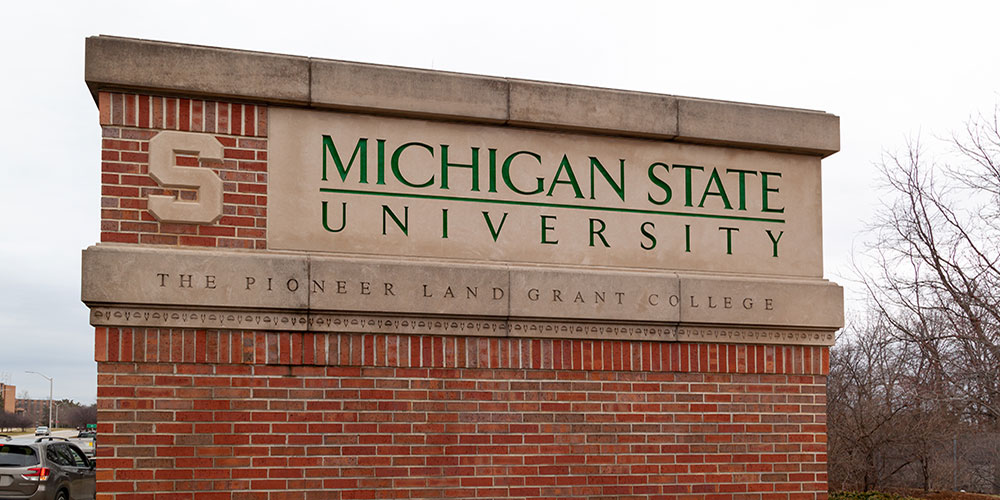EAST LANSING, Mich. — It’s been a year since a gunman opened fire on the campus of Michigan State University (MSU), killing three students and injuring five others. But what progress has MSU made to improve security since the February 13, 2023 mass shooting?
It turns out quite a bit, at least as far as physical security upgrades are concerned.
Most of the more than 800 classroom doors on campus that needed new locks can now be locked from the inside and require a key to unlock them from the outside, reports the Lansing State Journal. Additionally, doors that have lockdown buttons near them will automatically engage their locks when the lockdown buttons are pushed. First responders will also be notified.
Another upgrade has been the restriction of access to buildings across campus. Students and faculty will now need to use their university ID cards to enter most buildings from 6 p.m. to 7:30 a.m. on weekdays and all day on weekends. Before last year’s shooting, the buildings were open until 11 p.m., reports Fox17Online.
MSU has also greatly upgraded and expanded its video surveillance system. The school now has a security operations center (SOC) that is staffed 24/7 and monitors the cameras on campus. More cameras are being added, and the video surveillance system will have the ability to add artificial intelligence, facial recognition, and license plate recognition. The SOC is currently in an interim location while the permanent location is being renovated.
Additionally, MSU’s emergency notification system has been expanded. Now alerts can be sent via the SafeMSU app. The outdoor sirens and Green Light phones have also been upgraded to play tone-based alerts. Other alert system upgrades are in the works.
Another upgrade has been the installation of walk-through metal detectors at Spartan Stadium, Munn Ice Arena, and the MSU Tennis Center.
Although there have been many upgrades to MSU’s physical security, most members of the campus community have not taken the voluntary active shooter response training being offered by the school, reports the Detroit Free Press. About 3,300 have taken the online training, which was only made available in December. That’s only 14% of faculty and 3% of students on all of MSU’s campuses.
Additionally, authorities are still investigating the numerous false calls that came into law enforcement during the shooting. The false calls confused first responders and the campus community during the incident.







